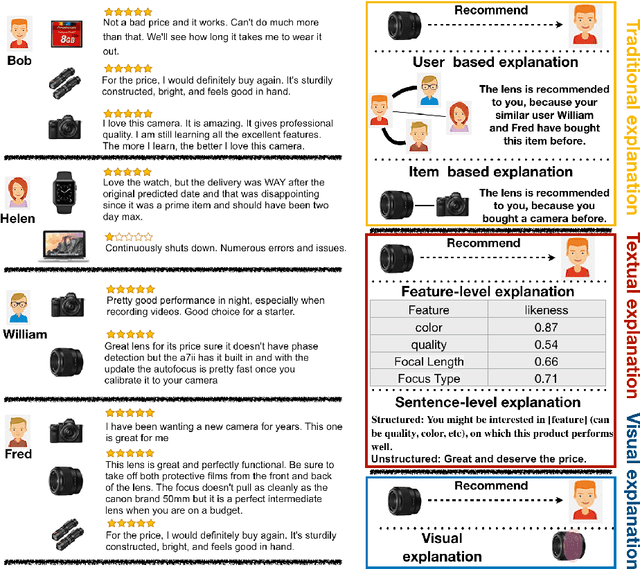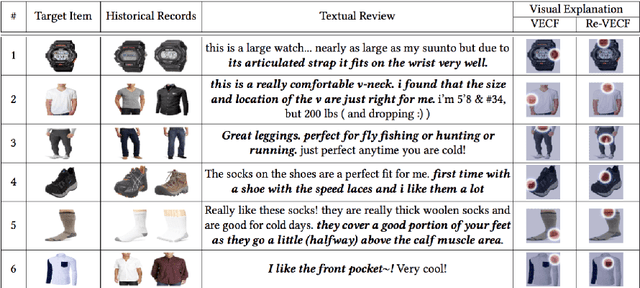Explainable Recommendation: A Survey and New Perspectives
Paper and Code
Sep 04, 2018



Explainable Recommendation refers to the personalized recommendation algorithms that address the problem of why - they not only provide users with the recommendations, but also provide explanations to make the user or system designer aware of why such items are recommended. In this way, it helps to improve the effectiveness, efficiency, persuasiveness, and user satisfaction of recommendation systems. In recent years, a large number of explainable recommendation approaches -- especially model-based explainable recommendation algorithms -- have been proposed and adopted in real-world systems. In this survey, we review the work on explainable recommendation that has been published in or before the year of 2018. We first highlight the position of explainable recommendation in recommender system research by categorizing recommendation problems into the 5W, i.e., what, when, who, where, and why. We then conduct a comprehensive survey of explainable recommendation itself in terms of three aspects: 1) We provide a chronological research line of explanations in recommender systems, including the user study approaches in the early years, as well as the more recent model-based approaches. 2) We provide a taxonomy for explainable recommendation algorithms, including user-based, item-based, model-based, and post-model explanations. 3) We summarize the application of explainable recommendation in different recommendation tasks, including product recommendation, social recommendation, POI recommendation, etc. We devote a section to discuss the explanation perspectives in the broader IR and machine learning settings, as well as their relationship with explainable recommendation research. We end the survey by discussing potential future research directions to promote the explainable recommendation research area.
 Add to Chrome
Add to Chrome Add to Firefox
Add to Firefox Add to Edge
Add to Edge